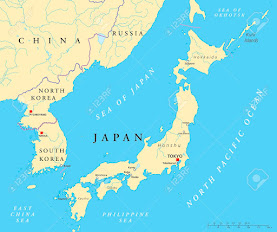Japan, a fascinating country with a unique societal history, has seen significant shifts in its social landscape throughout the years. From ancient times to the present day, Japan's society has transformed in various ways, reflecting its values, and adapting to new circumstances.
Ancient Japan: Community and Tradition
In ancient
Japan, communities were close-knit and centered around farming and fishing.
People lived in harmony with nature, valuing simplicity, and cooperation. The
influence of Shintoism, the native religion, shaped their spiritual beliefs,
emphasizing reverence for natural elements and ancestral spirits.
Feudal Japan: Samurai and Social Hierarchy
During the
feudal era, Japan was marked by a strict social hierarchy. Samurai warriors
held high status, while peasants, artisans, and merchants occupied lower
positions. Loyalty to one's lord and adherence to the code of Bushido were
highly esteemed. This period emphasized honor, duty, and loyalty.
Edo Period: Stability and Artistic Flourishing
the Edo
period of Japan was marked by a unique blend of social hierarchy, cultural
vibrancy, economic growth, and political stability. While it had its
limitations, such as the rigid social structure and isolationist policies, it
also fostered the development of distinctive Japanese arts such as ukiyo-e, and culture that
continue to influence and inspire to this day.
Meiji Era: Modernization and Change
The Meiji
Restoration in the late 19th century marked a turning point. Japan embraced
modernization, dismantling the feudal system, and adopting Western technology,
education, and governance. This period prioritized industrialization and a
sense of national identity.
Post-WWII: Economic Miracle and Gender Roles
After World
War II, Japan experienced an economic miracle. The society underwent rapid
transformation as it rebuilt itself. Gender roles shifted, with more women
entering the workforce, although traditional expectations persisted.
Contemporary Japan: Technology and Urban Living
Today,
Japan is known for its cutting-edge technology, including robotics and
electronics. Urban living is the norm, with densely populated cities and modern
conveniences. Despite these changes, traditional customs like bowing,
gift-giving, and seasonal festivals remain part of daily life.
Japan's
societal evolution has been a journey from ancient traditions to modern
innovation, adapting to new circumstances while preserving its cultural values.
The shifts in social structure, values, and gender roles throughout history
reflect Japan's ability to embrace change while remaining rooted in its unique
heritage.








0 Comentarios